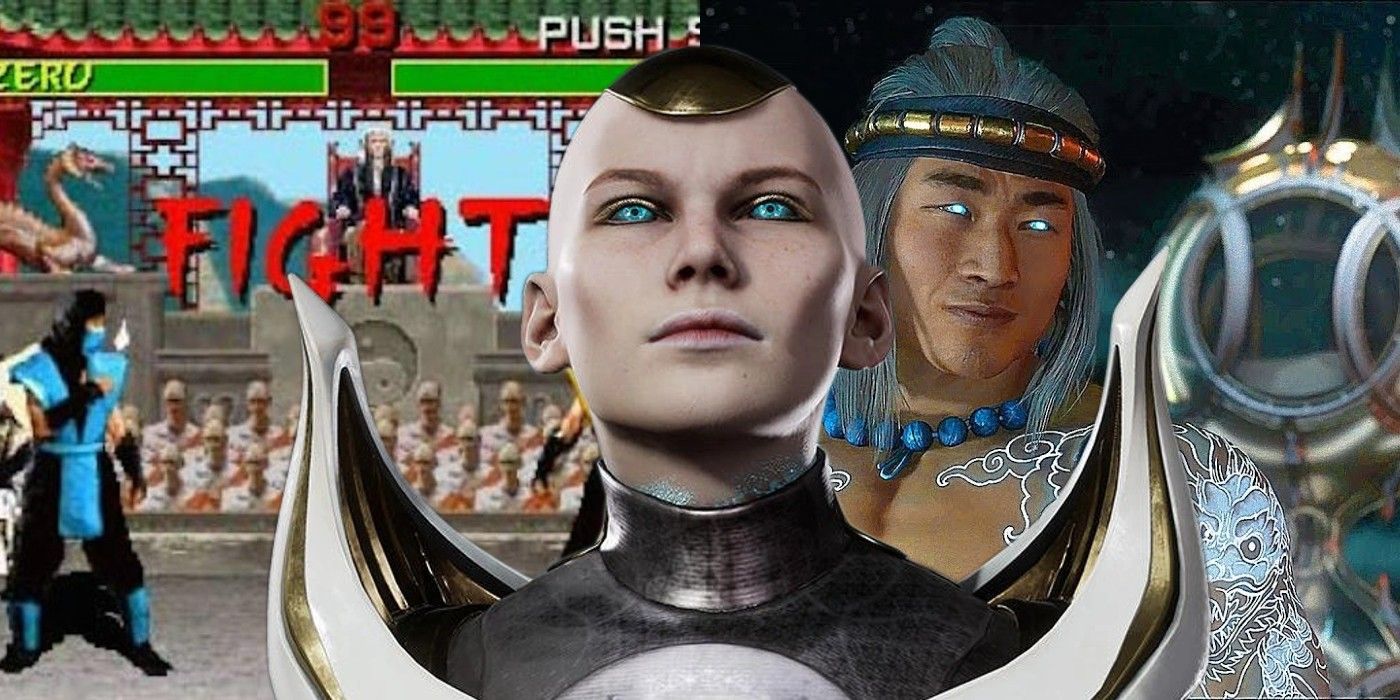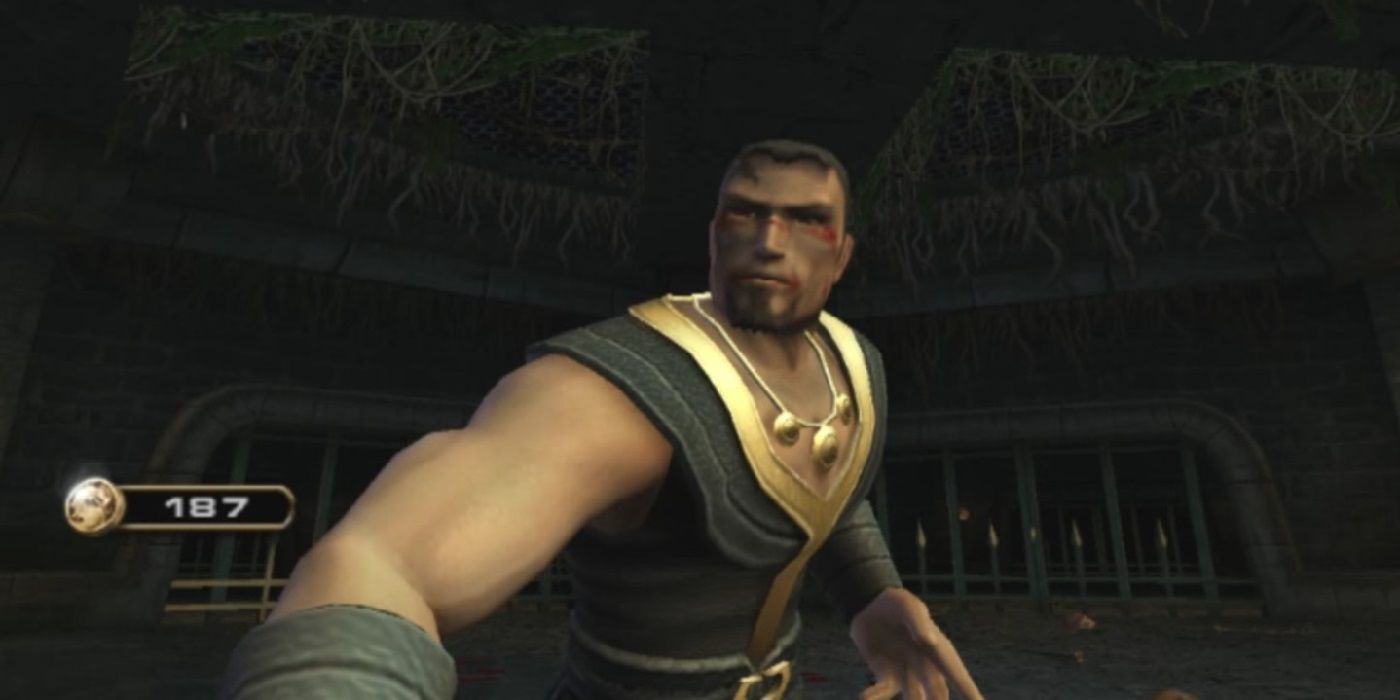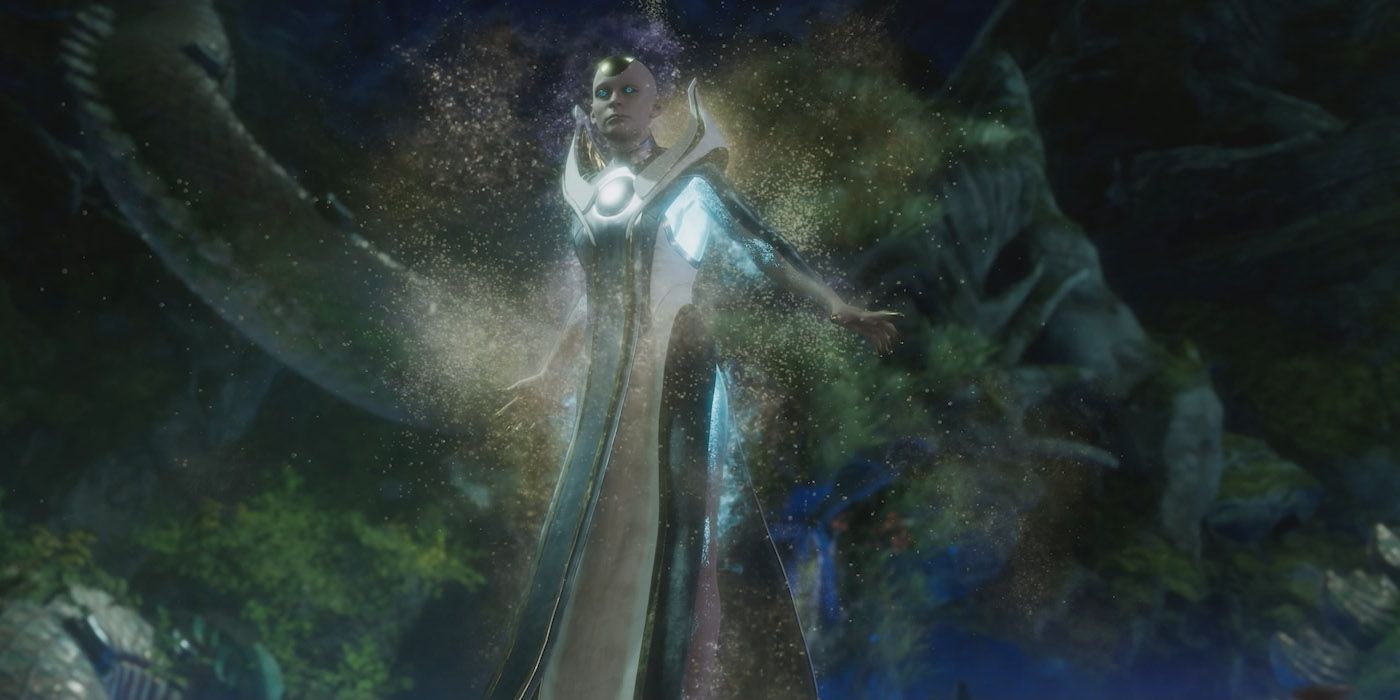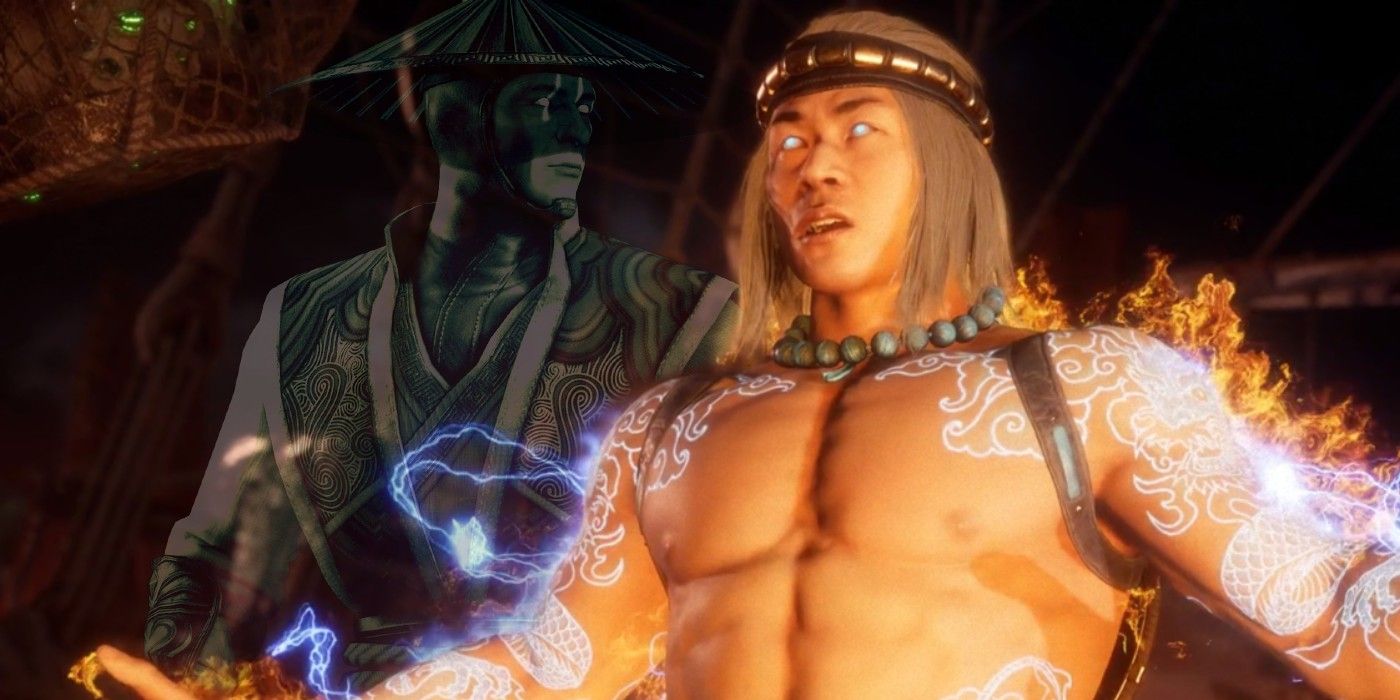The story of Mortal Kombat is a long and brutal one, and its timeline has seen several dramatic breaks over several games. Considering the lethal nature of the universe that the series takes place in, it should be little surprise that the timeline has shifted a few times. Each break in the timeline has caused significant changes for the series.
Mortal Kombat stars fighters across several worlds, primarily hailing from Earthrealm and Outworld. Although the series started with the titular tournament, the storyline has grown to encompass clashes across dimensions, with an ever-expanding roster of fighters in the midst of the chaos. Characters have died and been resurrected multiple times, and new gods, artifacts, and events have entered the story to make the world of Mortal Kombat more tumultuous with time. Every game has made the universe a little more intricate than the last, and in light of Mortal Kombat's 30th anniversary, it's hard to deny that this has worked to the series' benefit.
Mortal Kombat: Armageddon Brought About The End Of The First Timeline
Mortal Kombat began with the tournament that the series was named for, with the player's chosen fighter tasked with defeating the shady organizer Shang Tsung. However, the series quickly became more focused on a revolving door of antagonists in their attempts to conquer both Outworld and Earthrealm. After Shang Tsung came the despotic Outworld leader Shao Khan, who lost the role to insidious sorcerer Quan Chi. The three of them became the most iconic of the series' main villains, trading off the main antagonist role as needed.
The end of this phase of the series came in the fittingly-titled Mortal Kombat: Armageddon. It was something of a celebration for the series, bringing back nearly every playable character from the series' history. The story for Mortal Kombat Armageddon's best mode, Konquest Mode, follows the quest of new hero Taven, who encounters and does battle with several members of the series' cast. However, his quest does not end with his own victory, but that of Shao Khan, who kills the elder god Blaze to become a god himself. As Shao Khan becomes all-powerful, Raiden uses the last of his strength to send a desperate message to his past self, warning him of the future he must avoid.
Mortal Kombat Armageddon ends the original timeline in an interesting place. It shows one possible ending for the universe, with Shao Khan as the last fighter standing with no one to oppose his reign. It's a bad ending as the world of Mortal Kombat falls to Shao Khan's brutality, but avoiding it is a good starting point for the next game. Mortal Kombat 9 was the beginning of a strong trilogy, and Armageddon's ending gave it the foundation it needed.
Mortal Kombat 11 Was A Clash Of Timelines
The most recent game in the series, Mortal Kombat 11, is one of its more unique entries. The biggest reason for this is its new villain, the Goddess of time Kronika, and the havoc that she wreaks in her appearance. With her powers over time, both past and present versions of the series' lead characters come into contact with each other, and characters who died previously get a chance to come back to life. Even though Kronika didn't revive Shinnok in Mortal Kombat 11, she still leaves plenty of destruction in her wake.
The story mode of Mortal Kombat 11 makes good use of the chaos that Kronika inflicted upon the timeline. Seeing the younger versions of the series' iconic characters contrasted with their older, more experienced modern incarnations is a cool call back. Not to mention, Johnny's interactions with his obnoxious younger self provide some of the best humor that Mortal Kombat has seen. This game also ends with a character ascending to god status, but this time it is the heroic Liu Kang who does so. After his ascension, he is able to defeat Kronika and put an end to her time-twisting schemes. It seems fitting for such a wild game to end so spectacularly.
This intersection of timelines gave the series an opportunity that it hasn't had before in spite of Mortal Kombat 11's storytelling mistakes. Mortal Kombat's last opportunity to have such a variety of characters battle each other was, ironically enough, Mortal Kombat: Armageddon. Mortal Kombat 11's storyline is a long timeline break in itself, making it a game that fans are unlikely to forget.
Mortal Kombat 11: Aftermath Begins Another New Timeline Shift
The Aftermath expansion to Mortal Kombat 11 not only added a few new playable characters to the roster, but it extended the storyline as well with a new campaign. This campaign brought back classic villain Shang Tsung for one more scheme, once again trying to manipulate the cast for his own ends. Although that is an event in itself, Shang Tsung isn't the focal point of the latest timeline break. Rather, after Mortal Kombat 11's Liu Kang became a god, he once again took charge.
After his final victory over Shang Tsung, Fire God Liu Kang takes it upon himself to use his new powers to create a new timeline. With the hope of avoiding the pain and suffering that has taken place across the timeline that spanned the previous three games, he goes back in time in hopes of making sure that events unfold differently under his watch. The campaign ends with Fire God Liu Kang creating a new timeline, closing the current era of Mortal Kombat and setting the stage for the next game to start anew.
There are a lot of unanswered questions regarding what the new timeline of the Mortal Kombat universe will entail. It remains to be seen who will be involved, and how their lives or alignments will be changed in the new timeline. MK's Liu Kang worked better as a villain in the past, but Fire God Liu Kang broke the timeline in an attempt to make a better universe. Fans of the series will have to wait until Mortal Kombat 12 to find out if he succeeded.
The increasingly convoluted story of Mortal Kombat and its multiple timelines gives it a more complex story than one may expect from a series of fighting games. Each new break in the timeline offers more opportunities, be they more plot threads to introduce, or characters new and old to add to the roster. Considering the latest turn in the story, it seems that Mortal Kombat will continue to create new timelines for a while yet.
Source: GameClips/YouTube




